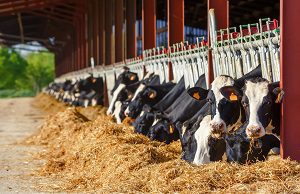
Insuring Commercial Livestock
 If you’re in the business of raising livestock, then you are probably keenly aware of both the value of the animals and the specialty care they need. They require a lot more maintenance (not to mention TLC) than the average crop, and if something were to happen to them, then the financial ramifications could be significant.
If you’re in the business of raising livestock, then you are probably keenly aware of both the value of the animals and the specialty care they need. They require a lot more maintenance (not to mention TLC) than the average crop, and if something were to happen to them, then the financial ramifications could be significant.
Under such circumstances, a specific commercial insurance benefit called livestock insurance will be there to assist you in covering your own losses should something happen to one of your animals. Here’s how it works.
Understanding Livestock’s Insurance Needs
When you raise livestock, you have an incentive to keep that livestock alive, either for eventual slaughter or for use on the farm. Livestock insurance can extend to most of these animals, including:
-
Buffalo
-
Cattle
-
Bison
-
Horses
-
Goats
-
Sheep
-
Alpacas
-
Llamas
-
Deer
-
Elk
-
Ostriches
-
Emus
-
Pigs
-
Chickens
Though some of these are common livestock, others are more exotic. Regardless of your need or intended use for your livestock, however, benefits known as livestock & cattle insurance will generally assist you.
What Does Livestock Insurance Cover?
In case of an unexpected but unfortunate accident on your farm, your livestock insurance can come to your aid. Livestock can be very expensive, so anything that harms them can financially harm you.
This insurance may cover loss or death of your livestock due to:
-
Weather such as lightning, hail, flooding, wind, etc.
-
Accidents such as fire, smoke, explosions and more
-
Natural disasters
-
Theft and vandalism
-
Collision in transit
There is also a liability insurance component, which will cover your livestock if the animal causes harm to someone else. For example, if your horse kicks a neighbor who is visiting you, then this coverage can help them cover their medical expenses. It can also assist you if that party sues you.
What Does Livestock Insurance Not Cover?
Though livestock insurance is expansive, it is not all-encompassing. For example, certain exotic animals will not be covered. Additionally, death of livestock due to old age or disease will not be covered. You may also have to add additional insurance to cover animals who are accidentally shot, attacked by wild animals or drown.
What Does Livestock Insurance Cost?
The cost of livestock insurance varies widely depending on many factors, including:
-
Location and size of the farm
-
Type of coverage you carry
-
Coverage limits
There are three general livestock insurance benefits available on the market:
-
Individual coverage insures animals individually. Usually, these are expensive animals that you want specifically listed on the policy. This is generally more expensive than other policies.
-
Blanket coverage bundles coverage for your livestock with coverage for your other property, such as structures and equipment.
-
Herd coverage is the most common type of livestock insurance and allows you to cover animals separated by species. It might insure 500 pigs, 300 cows, etc.
Be sure to speak with your insurance agent about the coverage your livestock need. They will guide you through the process of optimizing your benefits.
